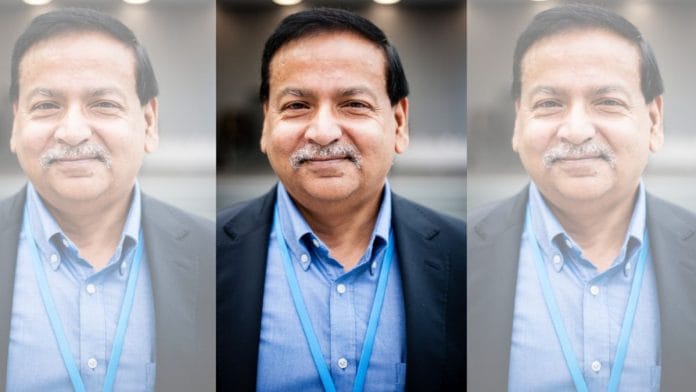Emerging economies have lost their warrior, Bangladeshi-British scientist and climate change ‘revolutionary’ Dr Saleemul Huq. He advocated the need for highly industrialised countries to compensate other less well-off ones for climate change loss. It’s only fitting that the loss and damages fund, created last year at the United Nations Conference of Parties (COP27) to provide financial assistance to such nations, be named after him.
Since his death on 28 October in Dhaka, climate change scientists and activists from around the world, like Jayanta Basu and Timmons Roberts, have been asking that the loss and damages fund be named after him. It’s an apt choice for a more poetic reason, too. In Urdu and Bengali, the word ‘Huq’ means ‘right’ or ‘dues’, said Aditi Mukherji of the Consultative Group for International Agricultural Research (CGIAR) on X (formerly Twitter). This ‘right’ is also what Huq fiercely argued for throughout the fight for the loss and damages fund,
As the director of the International Centre for Climate Change and Development in Bangladesh, Huq was instrumental in global climate negotiations. He vocalised South Asia and Africa’s core struggle for the loss and damages fund — that countries in what many call the “Global South” be paid reparations for unevenly suffering the impact of climate change they didn’t cause.
Why do we need a loss and damages fund?
Climate change negotiations have come a long way since the 1992 UN Climate Change Convention in Rio, which was the first time countries acknowledged their ‘common but differentiated responsibilities’. This also paved the way for acknowledging the different roles nations played in inducing climate change.
Global warming and climate disasters have become more common in the last two decades, and countries have realised that they need monetary assistance to adapt to such changes. Aid programmes and climate finance bodies, such as the Green Climate Fund and the Adaptation Fund, were founded with the help of the UN COP to help countries combat climate change and reduce emissions effectively.
With an existing climate finance framework, why did activists like Huq push for a separate loss and damages fund? Because of the question of justice. A ‘loss and damages’ fund underscores the responsibility of Western nations to pay for climate change damages incurred by other countries. In negotiations overwhelmingly dominated by Western countries, the mantle of climate change responsibility is avoided like the plague. The loss and damages fund is the first step to recognising historical wrongs and, hopefully, correcting them too.
Also read:
Fixing disparities
After a decade of negotiations, all 197 countries party to COP27 agreed to create a loss and damages fund at Sharm al-Sheikh in Egypt. While countries are yet to deliberate who will control the fund and which countries will finance it, it is still a huge step forward. It accepts the basic tenets of climate justice, arguing that while climate change is a problem faced by all, it has not been caused equally by all.
Rapid, unchecked industrialisation in the US, England, Germany, and Canada has caused huge damage to the environment. A 2019 analysis showed that the US and Europe, historic emitters, have together contributed to over 50 per cent of global emissions since 1750. In comparison, Africa has contributed just 3 per cent.
Much like colonial reparations, the West has routinely ignored calls to pay climate change reparations. Except now, the signs of climate change damage in South Asia and Africa are for all to see – from flash floods in India and Pakistan in 2022 to the drought in Ethiopia since 2020. However, as more countries in South Asia, South America, and small island developing states (SIDS) are demanding their rightful dues for suffering climate disasters, the West needs to face the proverbial mirror and accept its disparate emissions contribution. Loss and damages should function on the ‘polluter pays’ principle, and historic polluters should be held accountable for their actions.
Saleemul Huq’s work revolved around pointing out this disparity and asking the historic emitters to take responsibility for their emissions. Huq was insistent that the loss and damages fund should not be seen as aid by ‘rich countries’ to ‘poor countries’. “When money is given as aid, all the power rests with the donor. It is an unequal relationship,” he was quoted as saying in 2022.
True to his name, Huq fought for climate reparations for vulnerable nations till his last breath. He was an advisor to the president of the COP28, which was to be held in Dubai in December 2023. In a letter to the president earlier this year, Haq again pushed for finalising loss and damages funders by the end of COP28. He wanted to use the money for the “poorest victims of human-induced climate change.” He called the COP28 the COP1 — the first COP in the era of climate loss and damages.
(Edited by Zoya Bhatti)






